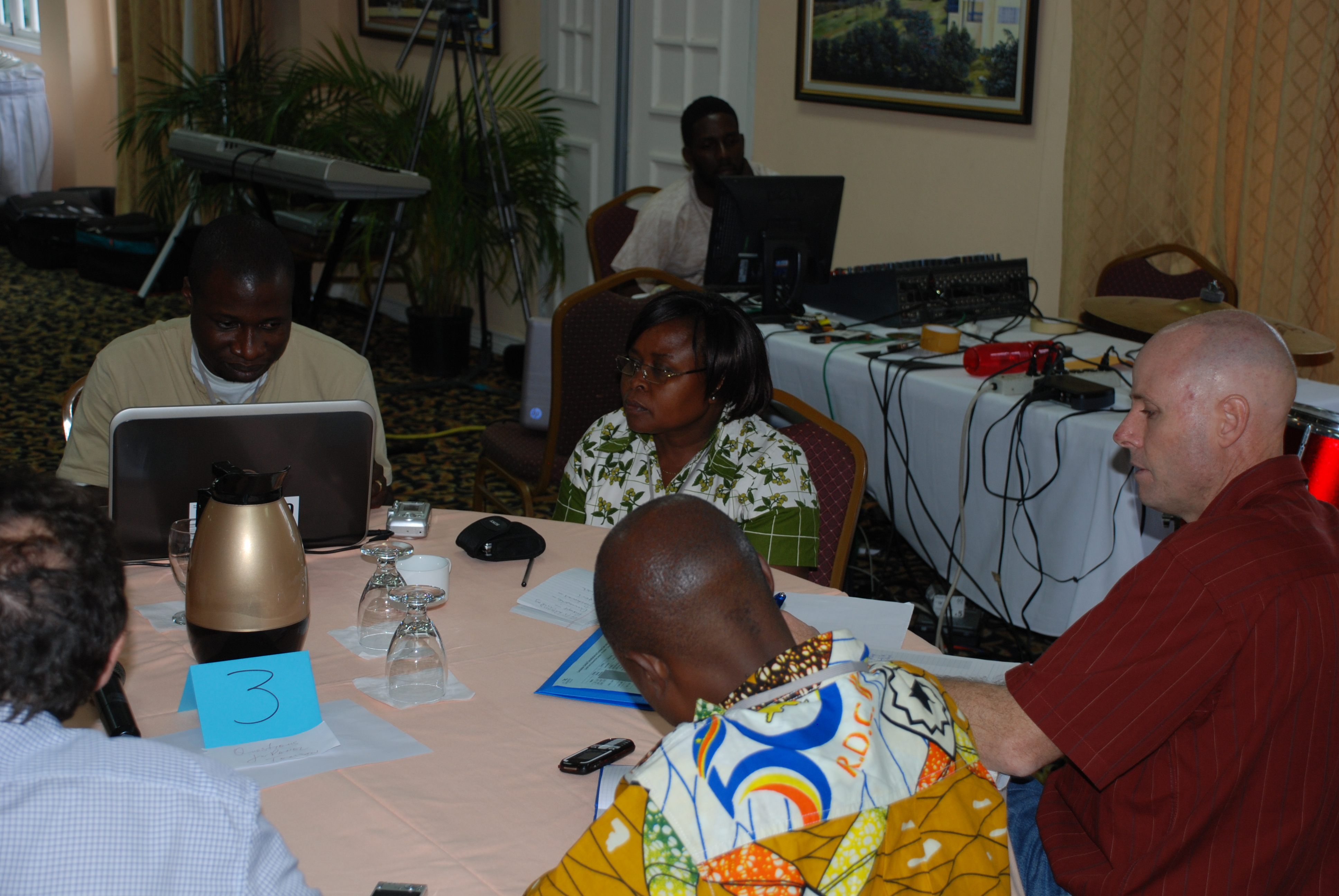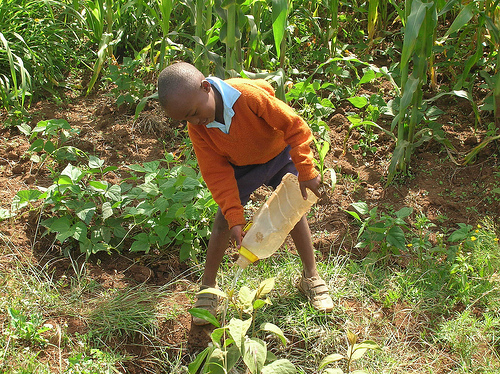
The Jamaica Call to Action is unique not only in the two concise convictions on which the document is based (see the previous post), but also because of the comprehensive and specific ‘Calls’ that make up the core of the document. These cover everything from lifestyle to theology to economics to agriculture.

Here is a brief analysis of these calls and the fields of study to which they apply:
- For all of us: #1. A new commitment to a simple lifestyle. Lausanne actually called for a simple lifestyle in one of the early documents of the movement (Lausanne Occasional Paper #20), a call that we understand anecdotally was controversial even in 1980. This call leads the list as a recognition that nothing we attempt corporately will matter much if it does not come out of lives that are committed to action as well as words. Living “within the proper boundaries of God’s good gift in creation” is an implicit acknowledgement that we live in a limited, closed system, and that self-restraint is not only necessary but good.
- For theologians: #2. New and robust theological work.Theology is the basis of all we believe and should be the basis of all we do as Christians, and this is no less true of our creation care response. The Consultation is asking theologians to engage this topic in a number of areas, including a new look at humanity’s identity with respect to creation, a theology that will challenge economic ideologies that run counter to biblical stewardship and so do harm to creation, and importantly a new examination of eschatological doctrine and teaching.
- For those engaged in missions: #3. Leadership from the church in the Global South and # 5. Environmental missions among unreached people groups. Recognizing that the ‘Global South’ (a United Nations term) will bear most of the brunt of the environmental crisis, the Consultation is asking here that these sisters and brothers offer leadership – practically and by example – to the rest of the church. This statement is intended to be read as an implicit acknowledgement that we are all in this together. Recognizing that creation care is part of our response to the gospel, it is logical that we find ways to incorporate that concern in the church’s efforts to reach those who have not yet hear the saving message of salvation through Jesus Christ. Since many of these who are unreached are also among the early victims of environmental degradation, such an integration is not only logical but is likely to be effective both on the gospel and on the environmental side of the equation.
- For pastors and denominational leaders: #4. Mobilization of the whole church and engagement of all of society. If we are to engage all of society in this effort, and it seems that we must if we are to be effective, the church is the only institution that can do this effectively. The local congregation is where simple lifestyle can be preached and modeled, there theologies can be preached and responded to, and where people of every occupation can be challenged to act in their own particular spheres of influence.
- For scientists, political leaders and business people: #6. Radical action to confront climate change. Jamaica was not a climate change conference, but the Consultation recognized that this is one of the big, intractable problems with which we have to deal. Scientists still have work to do, but the burden now lies on our leaders in politics and in business – particularly large, multinational corporations – to bring about rapid and effective changes in policies and practice.
-

Thank-you to Care of Creation Inc. for providing permission to draw from their photo archives for this series! This picture is from Kenya farm and demonstration plots. For farmers (and eaters): #7. Sustainable principles in food production. This call recognizes one of the most difficult aspects of our current situation: By merely eating, we do untold damage to God’s creation. It doesn’t need to be this way, and change is possible, if difficult. It will take commitment from everyone in the food-chain, farmers to diners, to change a system that currently traps almost all of us.
- For economists, business people and political leaders: #8. An economy that works in harmony with God’s creation. As with food, our economic lives are tangled in a web that seems designed to do great harm to creation. We can do better, but it will take commitment and perhaps sacrifice to transition to a system that works with, rather than against, the principles by which God’s creation operates.
- Finally, for those of us who work within the creation care movement: #9. Local expressions of creation care, and #10. Prophetic advocacy and healing reconciliation. Even as creation care goes ‘mainstream’, the activities for which the movement has been known are still necessary. We can only restore our lost forests by planting one tree at a time. We can only bring back our lost rivers by healing the streams in our back yards. And as long as there are those whose communities are being devastated environmentally, there will be a place for both ‘speaking truth to power’ and for bringing the kind of healing that only biblical reconciliation can bring.
All of these things need to be done. Every one of them is within reach. We have the collective knowledge. We have the ability and the resources. We need the will.
But we need something more – which is why the Call to Action ends with one more plea which is discussed in the final post of the series. To read the final post click here.
Update (9/13/2013. 4:33 PM): Added link to final post in the series.
Rev. Edward R. Brown (Ed) is the Director and CEO of Care of Creation, and has recently been named the Lausanne Senior Associate for Creation Care for the Lausanne Movement. He directs the work of Care of Creation in the US, Kenya and Tanzania, and as Lausanne Senior Associate is responsible for all of the Lausanne Movement’s creation care activities. He speaks throughout the US and internationally on the topic of Creation Care, and has been a seminar presenter at four previous Urbanas.
Ed is the author of two books: Our Father’s World: Mobilizing the Church to Care for Creation, published by InterVarsity Press in 2008, and When Heaven and Nature Sing: Exploring God’s Goals for His People and His World, just released by Doorlight Publications in December, 2012. Our Father’s World was praised by biologist and environmentalist E. O. Wilson as “beautiful and inspiring, †and author Howard Snyder says When Heaven and Nature Sing “is packed full of wisdom—wisdom that is both biblically based and ecologically sound.â€
Ed received the Bachelor of Arts degree from Gordon College and the Master of Divinity from Gordon Conwell Seminary (Pastoral Studies). He served as Chief Operating Officer for Au Sable Institute of Environmental Studies, and has worked with InterVarsity Christian Fellowship and as a pastor both in the US and overseas. He and Susanna, his wife, both grew up as children of missionaries in the country of Pakistan, and carry a love for that country and for overseas ministry with them. They live in Madison WI and have four grown children: Melanie, Tim, Katrina and Amy.
Organizational background: Care of Creation Inc. is an environmental missions organization. It was founded in 2005, “to pursue a God-centered response to environmental challenges that brings glory to the Creator, advances the cause of Christ, and leads to a transformation of the people and the land that sustains them.â€
Care of Creation seeks to “mobilize the church†in various countries to focus on creation-care as an important part of ministry. Overseas projects include education, tree-planting and agricultural programs. The organization currently has projects on the ground in Kenya and Tanzania and plans to expand to other countries in East Africa in the near future.

Thanks for this article! New and interesting info to me, though I stay fairly theologically and “church” informed (as a former Evangelical and now very Progressive [not “oldline” liberal] Christian). I continue to study for both personal and blogging purposes, to spread the love/grace of God… was aware of the issues and trends mentioned but not the “Call to Action” itself.
I appreciate it all, but will comment on just #2 (which I read as applicable to everyone, though at different levels, intensity). Thankfully, many studious (lay and leadership) Evangelicals ARE doing this, more and more in recent years. Yes, in the process many leave “the Church”, at least for a time, and come back with a different worldview and “plugged in” a different place… some may never come back. But the more the alternatives to specific core presuppositions are known of (or imagined), with other ways of reading the biblical texts (and their authority, etc.), the more the rest of the list can be aggressively addressed.
And “new” theological work need not always completely “reinvent the wheel”…. For example, one major theological system… really a “golden mean” paradigm in my view, already exists which has done incredible work on both biblical/historical scholarship AND on the scientific aspects of ecology: Process Theology. I know it goes “beyond” the already-suspect work of Open Theology (for many Evangelicals), but I’ve found it more consistent and true-to-all-the-data (of both general and “special” revelation) than any form of “orthodox” theism.
To focus just on the last point of the paragraph on #2, “eschatological doctrine”: One aspect that should be looked at much more closely, and faced “head on” is this: How Jesus worked from common Jewish apolcalypticism (of varying forms) which informed his view of the Kingdom of God he apparently taught as both “at hand” and “among you” (or “within you”)…. He expected it right away — in terms of Israel’s salvation — supernaturally instituted, as did both Paul and the Gospel writers. Taking Paul particularly… as part-and-parcel of his core theological perspective and points, Christians must not brush aside that at least HE was seriously misguided on this point. (I.e., it’s a vital one that can and should cause us to look closer at the nature and authority of his “revelations” and his subsequent theology).
And shouldn’t we look also (gasp!) at the possibility that the Gospel writers were misguided as well? Perhaps reflecting that even Jesus himself did not fully grasp the nature of God’s “intervention” in the world? (I mean “intervention” in a broad way that fits either orthodoxy’s theism OR process’s panentheism…. which way-of-working-in-the-world is ALSO germane to creation and creation care.)
Howard, you raise some fascinating issues that are better dealt with by trained theologians,which I do not pretend to be. One of my goals, along with other evangelical creation care folks, is to encourage the evangelical community to see that taking a strong position on environmental or creation care issues is consistent with traditional evangelical theological beliefs. In fact, the two (evangelical theology and biblical creation care) are more than consistent – they are inseparable. I would go further and argue that the power we need to face an environmental crisis that is in fact a spiritual crisis can only come from the sacrifice made by Jesus on the cross (see Col 1:19-20), a concept that is certainly at the heart of evangelical theology – how this would play for an progressive like yourself I do not know (but would be interested to find out!).
I would not want to disparage your own journey from evangelical to progressive – but such a path is not necessary to take this issue seriously. And sincere environmentalists who present the issues in this way tend to drive evangelicals away from the environmental/creation care cause because of the perception they create that suggests that a choice has to be made.
So, no – I don’t think a hypothetical possibility that either Paul, the gospel writers or Jesus himself were misguided would advance the creation care topic at all.
Thanks for the thoughtful, respectful answer, Ed. I acknowledge part of where I “was going” is deeper theology not necessarily tied, at least directly, to a responsible kind of eschatology that does foster creation care. However, what I will still press a bit on is that broader-and-deeper-thinking Evangelicals (especially pastors) should be helping moderate the (I think often escapist-motivated) views that Jesus MUST be coming within a very few years because of the “end times prophecies” being fulfilled. This is pretty widespread, especially in certain denominations (or collectives such as Calvary Chapels). It is tough to hold this seriously and emotionally and still devote focus and energy toward the kind of caring you have in mind, which often requires some fairly long-range planning and commitments.
If I’m not taking it too far and out of context, it seems the Interior Sec. (wasn’t he?), James Watt, under Reagan, used this very kind of reasoning in seeming to not care much about long-range planning. Yes, someone this highly placed may not often be so guided (and not saying he didn’t do some good things… I’m not that informed), but it is an example that the “imminent return of Christ” thinking CAN impact practical personal and national policy. (Maybe this was the very point in #2 above.)
A final reiteration: I haven’t explored it as much as I want to myself, but Process writers and teachers have done a lot to push ecological issues or “creation care” and seem to find it more integral to their system than do at least most Evangelicals.
I’m pleased to see that farmers (and eaters) were specifically referenced in this. It seems to me that farmers have a very vital role to play in any reconciliation with creation and it is important that this be recognized and emphasized. And everyone who eats is engaged in agriculture because, as Wendell Berry put it, eating is an agricultural act.
Thank you,Bill. I agree wholeheartedly! Berry has been and continues to be an ongoing inspiration for me.
Has your fourth installment been published yet? I can’t find such. Thanks.
Dear David, Please forgive me for not adding the link to the bottom of this post. I will do such. Ed’s fourth installment can be found at https://blog.emergingscholars.org/2013/08/jamaica-call-to-action-part-3-2/. In Christ, Tom
That’s terrific. Thanks, Tom.